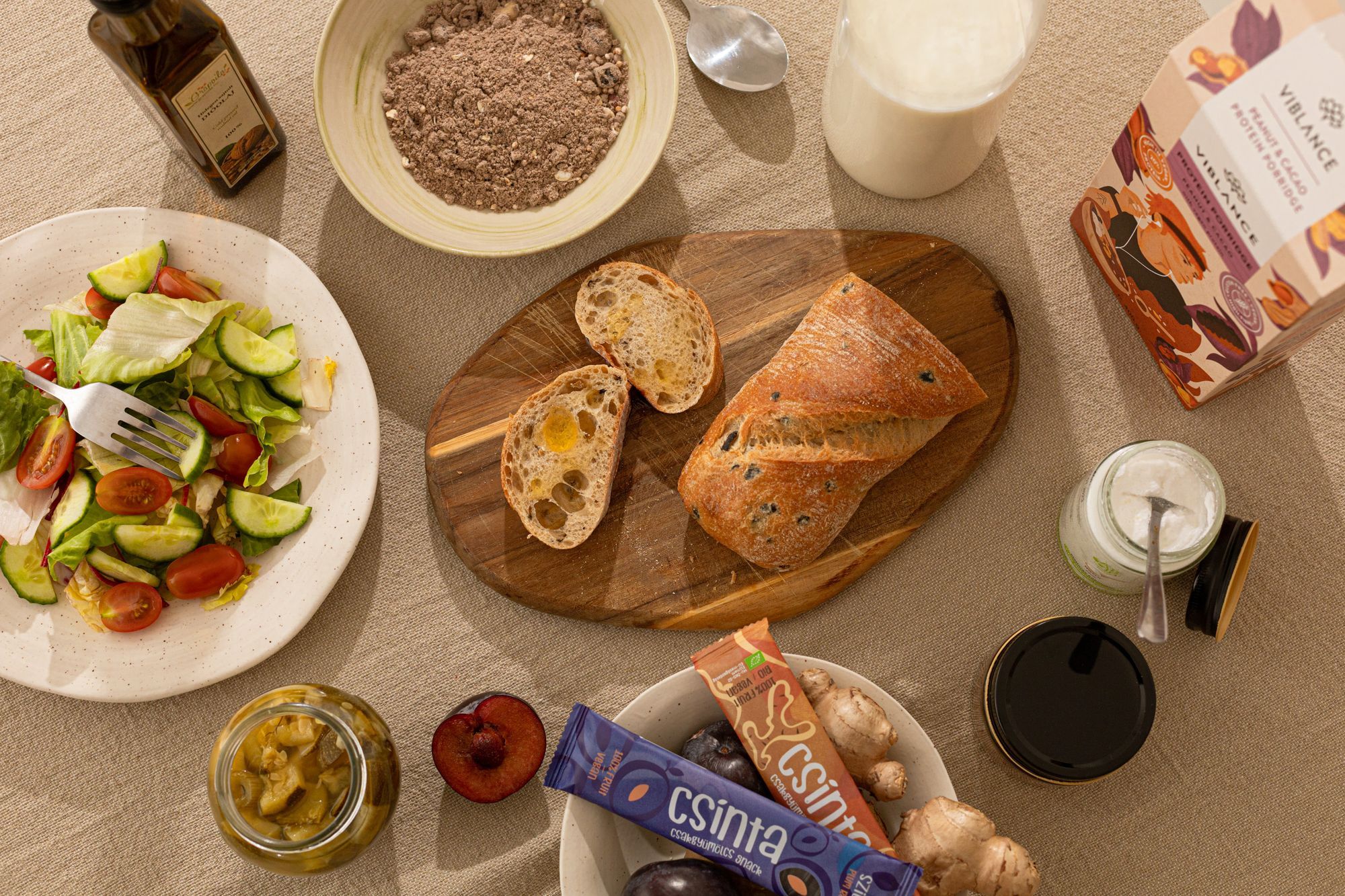In January, it’s all about Veganuary—the initiative was launched 4 years ago with the aim of raising awareness globally of the opportunities, benefits, and impacts of the vegan lifestyle and diet. The challenge gives everyone the chance to volunteer to try for a month (or even a week/day) what it means to ignore products of animal origin, be it food or clothing. In the fourth part of our series, we’ll showcase local brands that produce plant-based goods. It’s worth trying them out, as you might soon find that choosing them is not a compromise, but a pleasure!
Viblance—instant protein porridge
We’ve already featured the story of Viblance—it’s been a few years since the launch of the Hungarian granola brand and the beginning of their market conquest. Inspired by the initial success, they gained even more energy and started to develop new products. In addition to their delicacies in compliances with WFPB (whole-food plant-based diet), which consisted of oats, oilseeds, and spices, they started producing slightly lighter muesli and then creamy instant super porridges. They also experimented with granola bars and bonbons as a combination of the finest things but knew they could still up the ante.
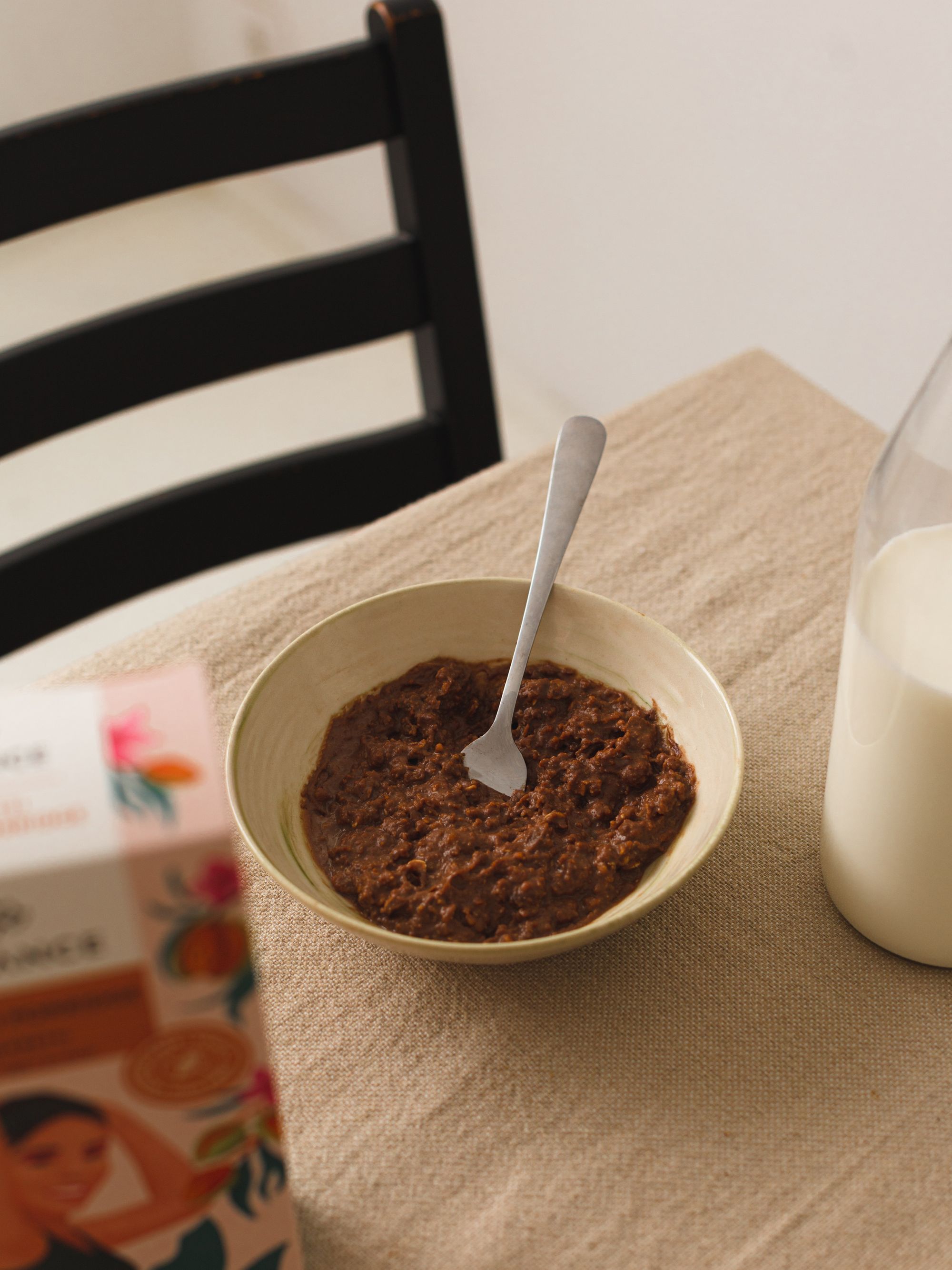

The new protein porridges were developed after a lot of testing. The previously well-known ingredients such as oatmeal, date cubes, or superfoods (chia seeds, quinoa), have been supplemented with pea protein, so that one portion contains 8g of extra protein, without additives, allergens, or a bad taste. The Amaretti version has tigernut flour and a touch of tonka bean, while the Peanut-Cacao version has ground-roasted peanuts. The result is creamy, nutritious, delicious, and vegan.

ALL IN natural food—coconut yoghurt and somlói galuska (somlói trifle)
ALL IN natural food has existed in Hungary since 2014, founded by Enikő Kiss, a multiple Hungarian champion and national heptathlete. Every product in the portfolio is gluten-free, dairy-free, egg-free, soy-free, and free of added sugar, can be eaten on its own, or even used in cooking. The brand is constantly introducing new products, but there are also some favorites that never go out of fashion. One of these is the versatile ‘coconut yogurt’ (not to be called this way officially, but let’s make an exception), which contains lactic acid bacteria and almost nothing other than coconut milk. It goes well with muesli or even curry and is the creamiest I’ve tasted in Hungary, so it’s worth a try.

If you’re in the mood for dessert, you’ll also find irresistible cupcakes, such as the gluten-free somlói trifle, made with walnut sponge cake, vanilla cream, and chocolate sauce. The ingredients here are also healthy and natural, and the harmony of the layers is so perfect that once you try it, you’ll definitely keep finding it in your basket time and time again. A tip: don’t miss out on the Piedmont 60 chocolate hazelnut spread either!


Zabola Firma—kimchi and fermented zucchini
Have you heard of fermentation? Or to put it more simply: have you ever eaten sauerkraut? Forget the vinegary, sugary pickle made with the accelerated process, but one that’s been seasoned with salt and spices and then left to ferment for weeks, or even months. The practice has seen a real renaissance during the pandemic, with many people starting to pickle kimchi, cucumbers, and beets or grow kombucha at home, alongside making sourdough bread. If you don’t fancy this activity, you can now buy a variety of fermented products from supermarkets. Zabola Firma produces WFPB diet-friendly salads, pickles and legume-based sandwich spreads in Berekfürdő.
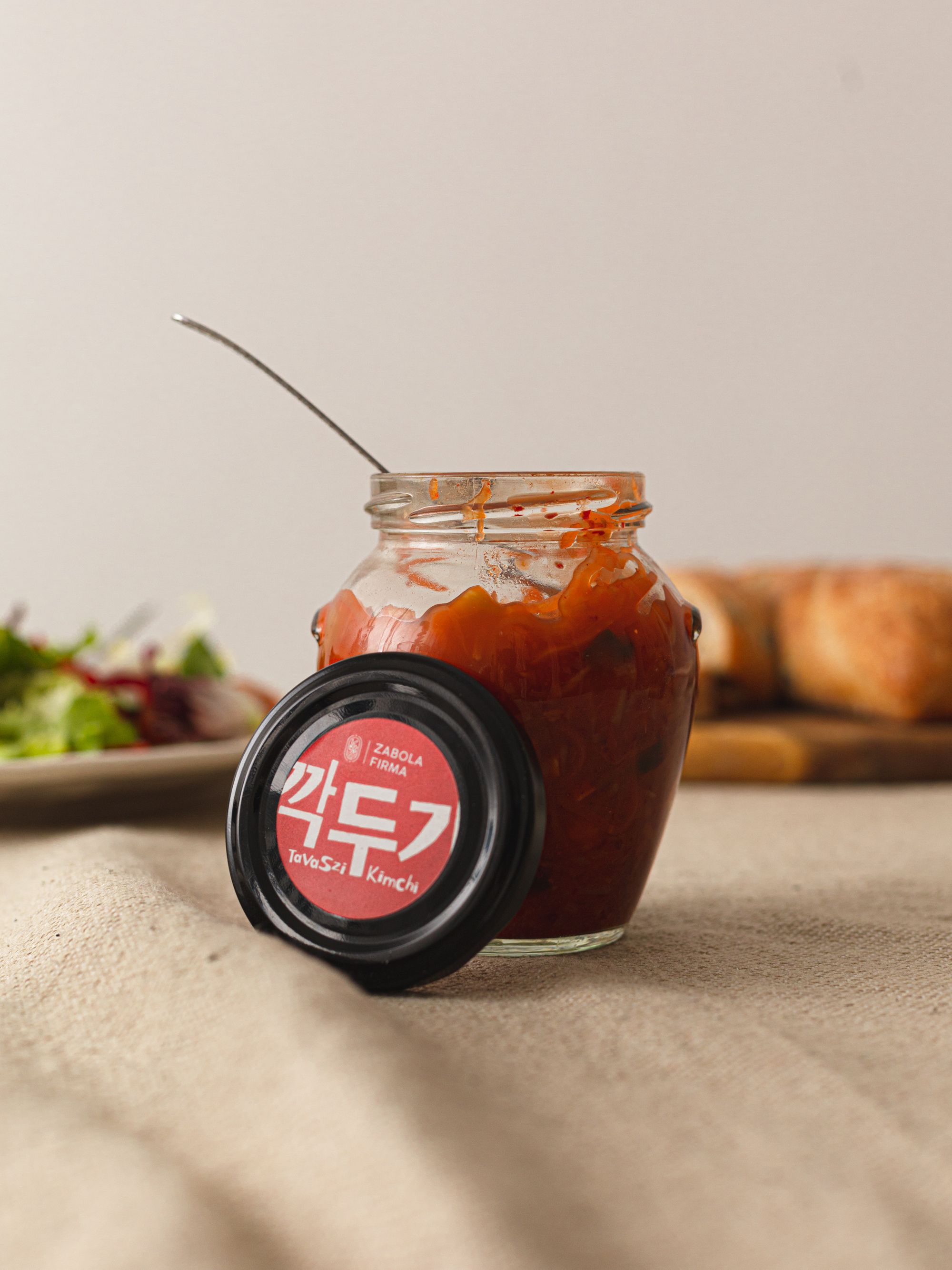
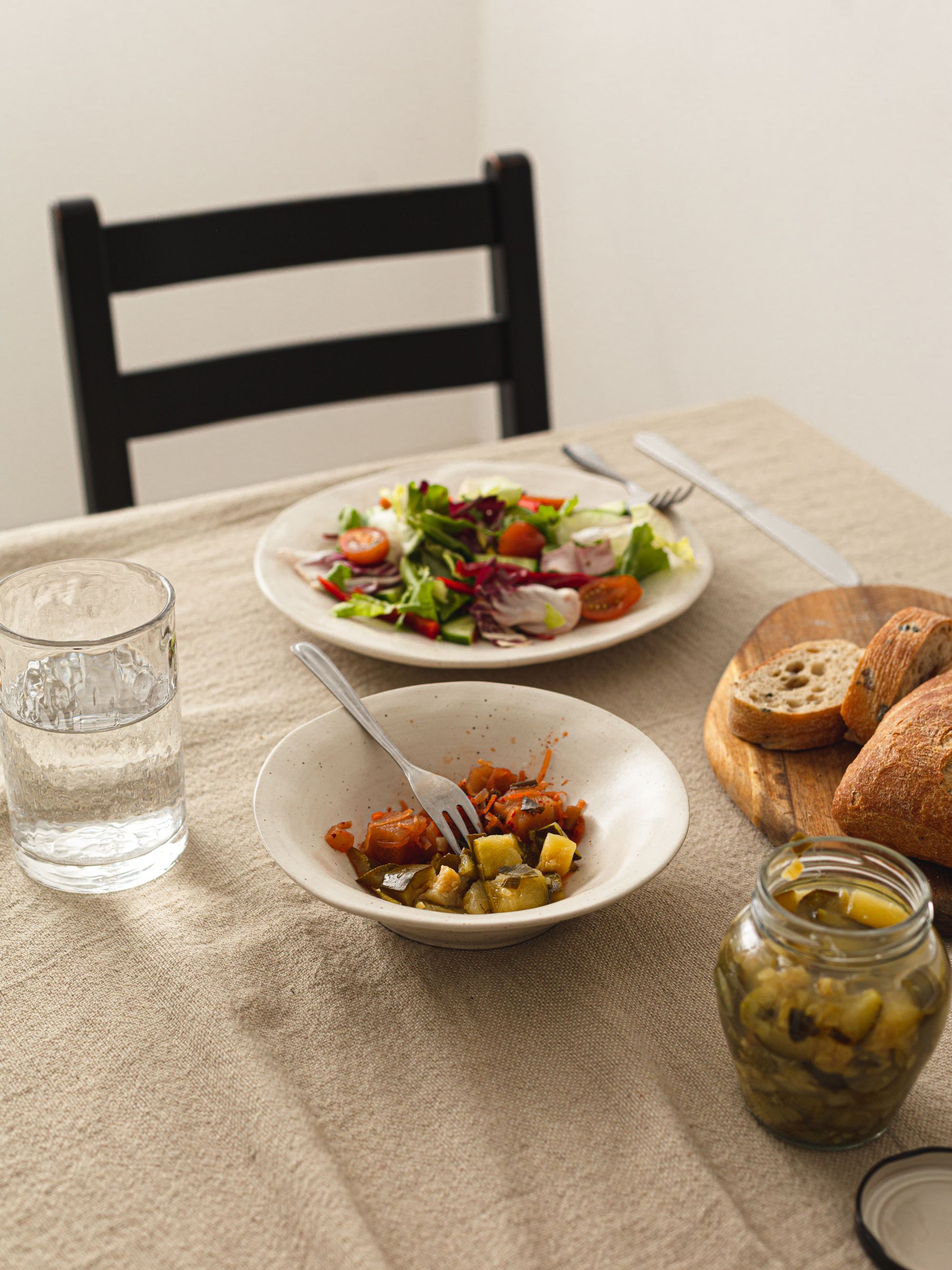
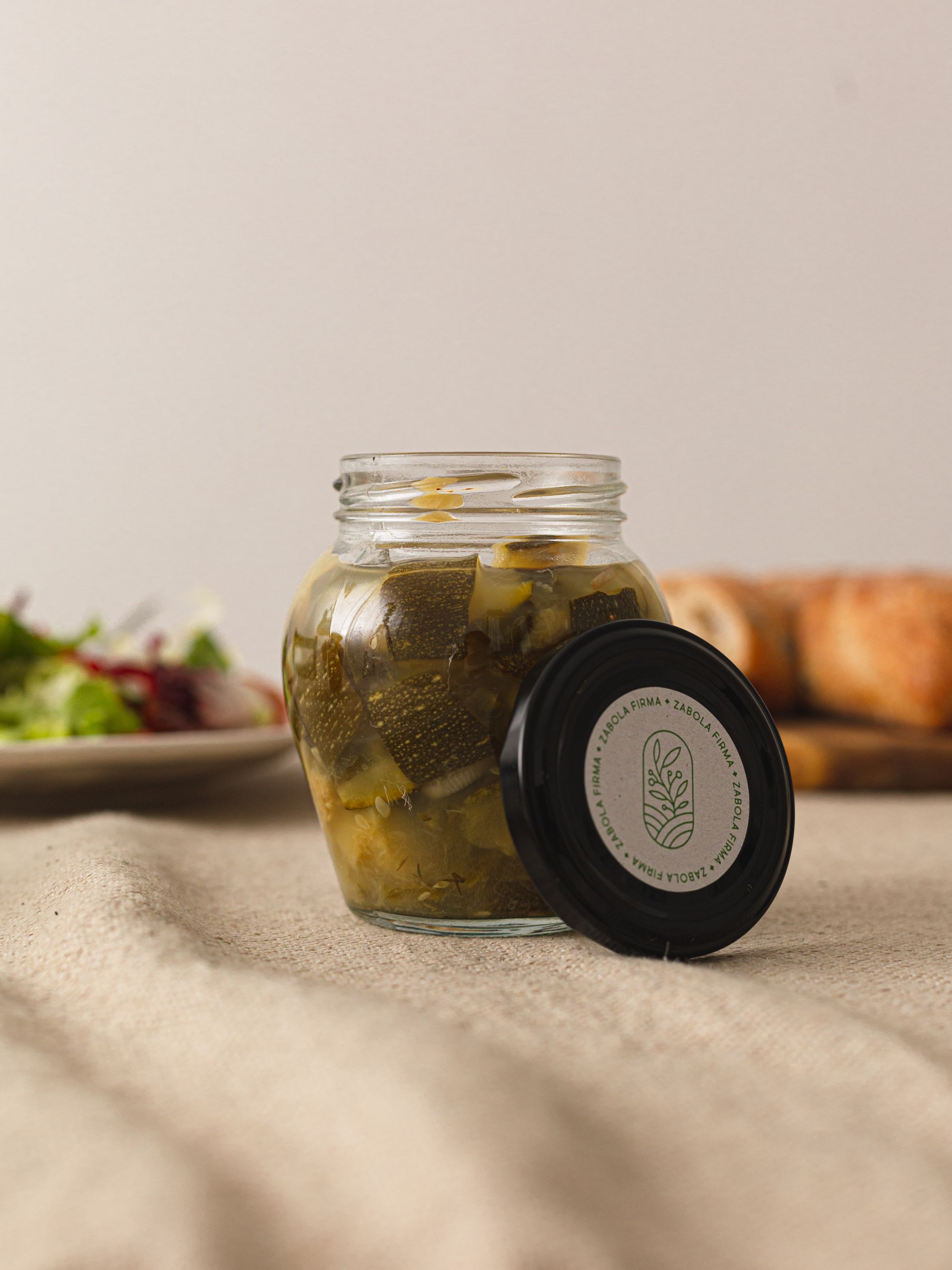
The ingredients are all-natural, contain no added sugar, and undergo controlled fermentation. All products are vegan and mostly free-from, the spicy kimchi paste, for example, is made with brown rice flour and dates. You can eat it on its own, or mix it with fried rice or in soup for an exciting flavor. Zucchini might even evokes a spring sensation, as part of a fish dish or even a tofu-buddha-bowl. Fermented products are pasteurized (so no longer probiotic) for ease of production and transport, yet more easily digestible and nutrient-rich, so it’s worth keeping them on the kitchen shelf.

Grapoila—cold-pressed oils
Grapoila was launched over ten years ago, but the brand’s development has been a real success story. It’s no exaggeration to say that the world of cold-pressed oils has become trendy again thanks to them—founder Marianna Pinczés turned a university project (grape seed oil production) into a business. Nowadays, they are known for their zero waste production and wide range of products, including seed butter, seed oils, cosmetics, and even oil blends for animals. The different oils are full of minerals and vitamins, as the temperature during production does not go above 40°C. They also have a high culinary value, with different flavors giving different characteristics to food.
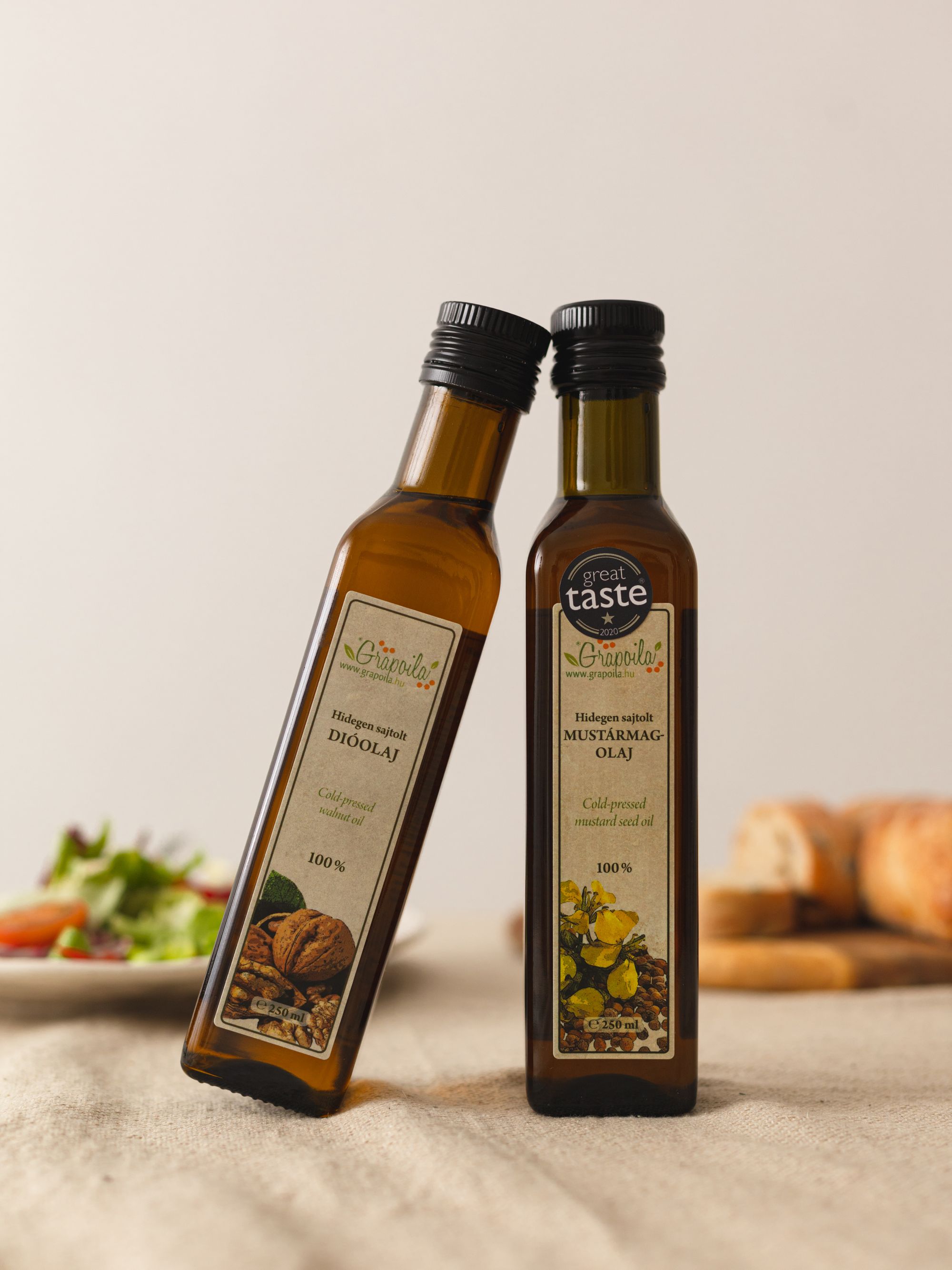
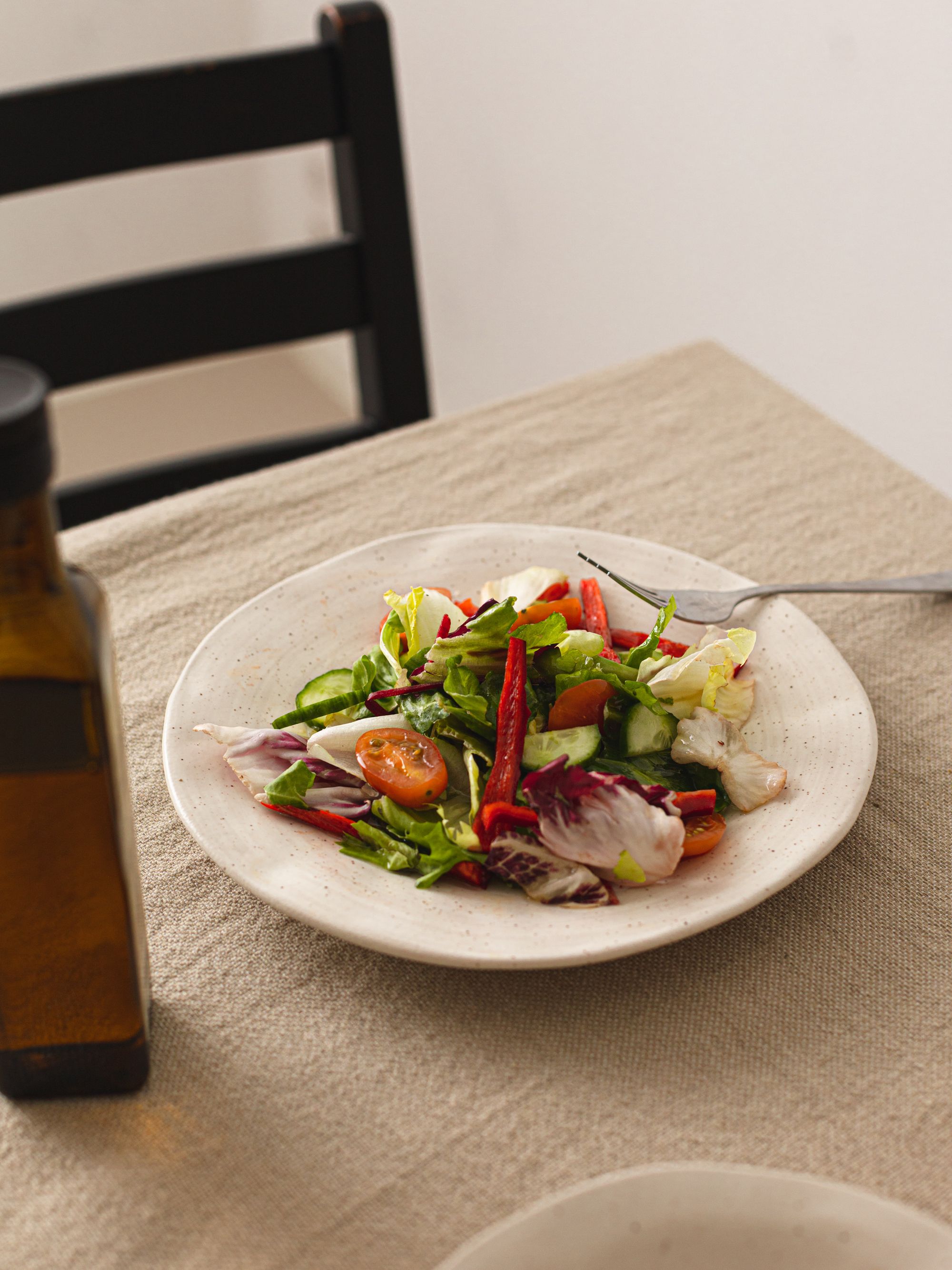
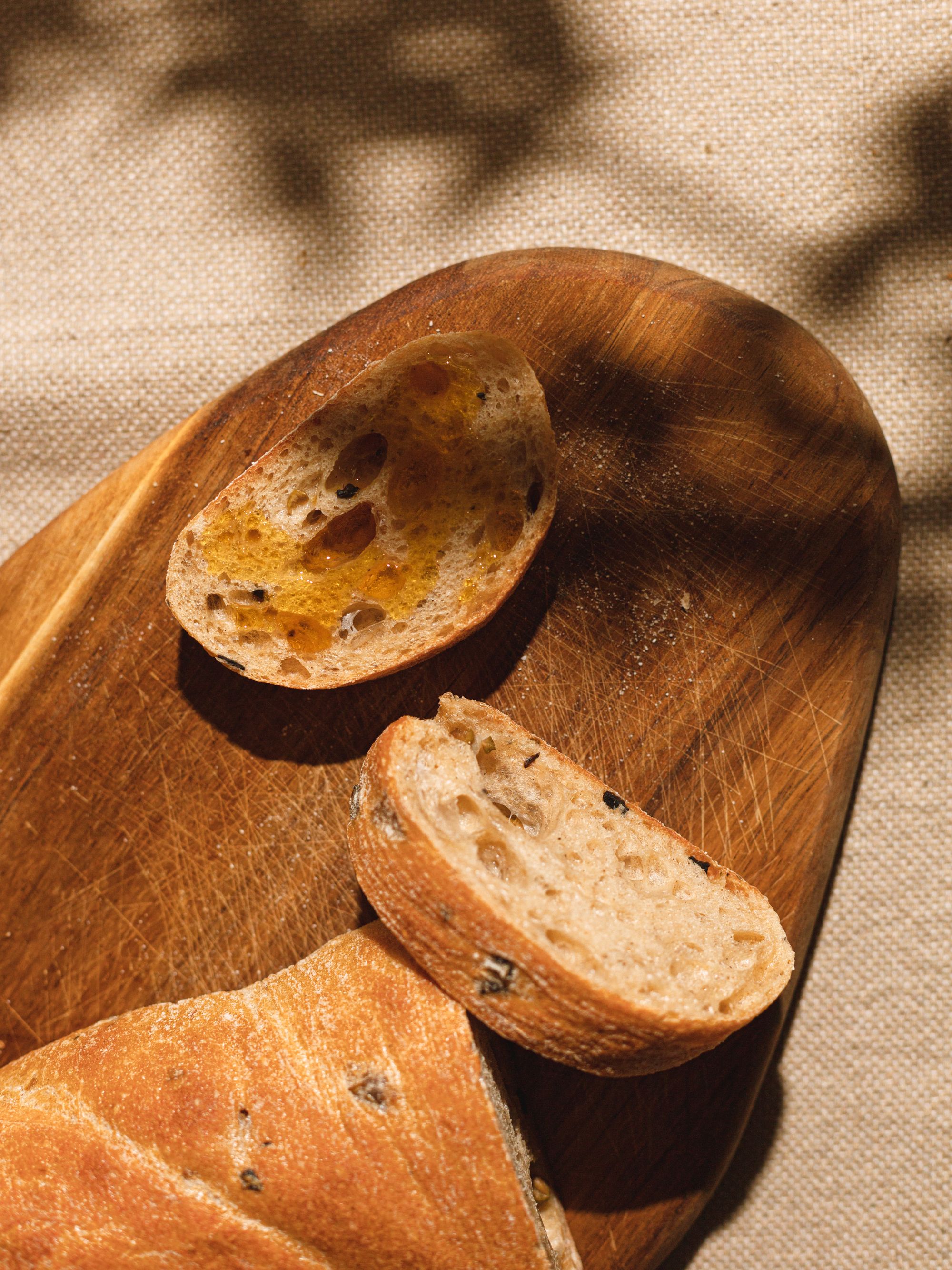
One of the products that stands out is the walnut oil, which goes well with both sweet and salty dishes, especially with camembert, pears, and grapes, but also gives a cocoa pudding a whole new taste. You can even use it as a skin moisturizer if you can stop yourself from eating it all while you’re applying it to your face. The mustard seed oil has a slightly spicier, stronger, has real mustard flavor, so it’s great for salads and marinades, but you can also use it in baking thanks to its high smoke point. It can be used externally for rheumatic and arthritic conditions, but also to strengthen cell walls due to its essential fatty acid content. It’s also worth trying the new FROT products, made from 100% fruit and vegetable purees and oils.
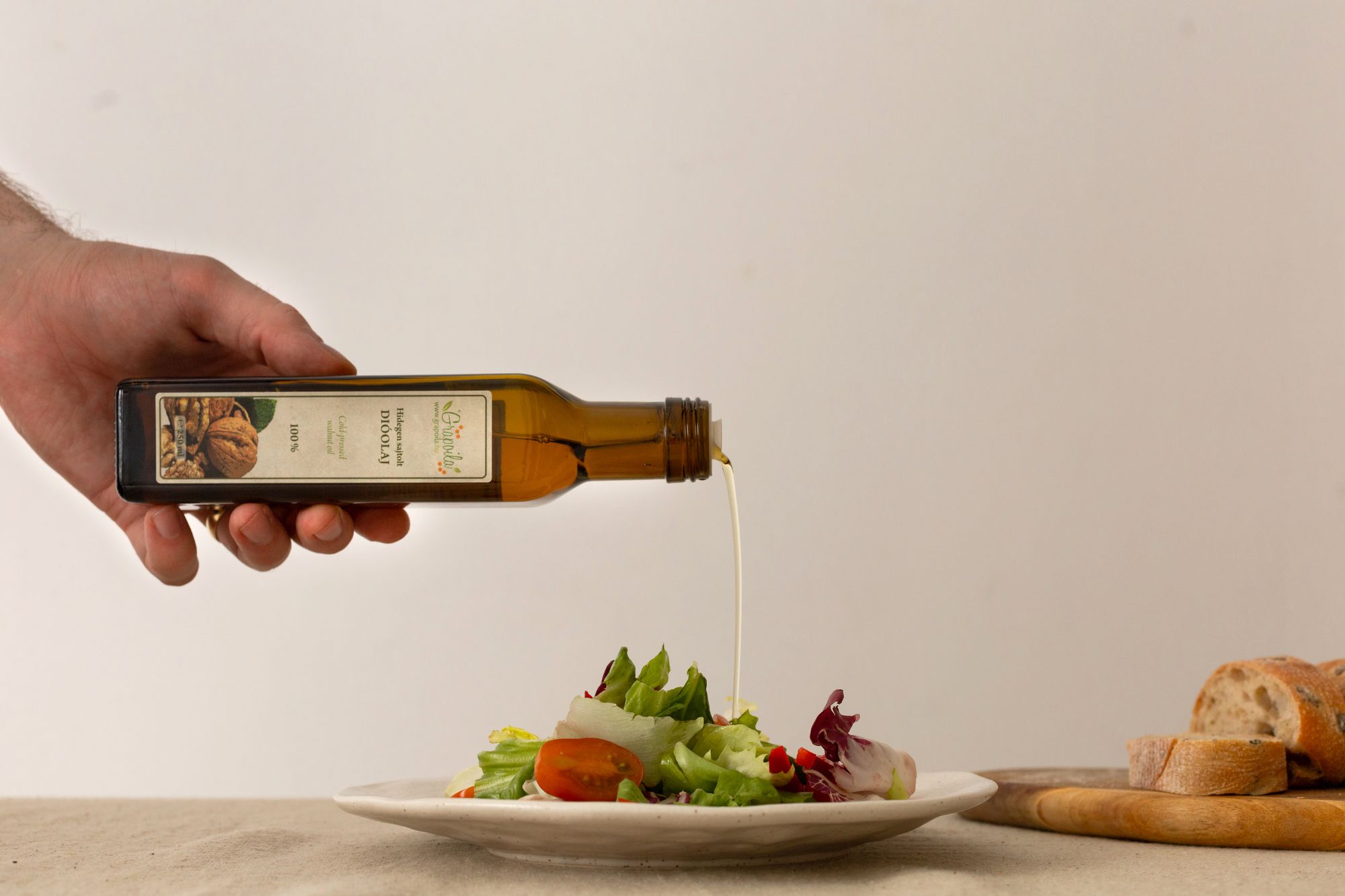
Csinta—plum and quince rolls
What is Csinta? We’ll give you a hint-ah! Nothing but pure fruit that has retained all the sunshine of summer. In fact, it’s a raw fruit sheet that is dried at low temperature and made in a small-scale factory from Hungarian, organic ingredients. Although you can buy date-based so-called energy bars in more and more places, Csinta is different because instead of Middle Eastern dried fruit, it exclusively contains ingredients that are grown in Hungary: quince, plums, or sea-buckthorn. It can be the base for a strudel or a cone, or you can dip it in sweet hummus or cream cheese, the possibilities are endless!


Although it’s full of fun and games, it’s not just for kids—the new identity reflects this, with a design by Carbon Group Communication that is both cheerful and refined. The fresh exterior has been accompanied by an internal change, as the Csinta team has also recently introduced a new product: the Csinta cookie, a kind of raw vegan pastry roll with tahini, filled with oil seeds and prepared with plum-cherry and apple-walnut-ginger flavors. Healthy, vegan, and naturally sweet, it’s easy to munch on and easy to love.
Photos: Dániel Gaál



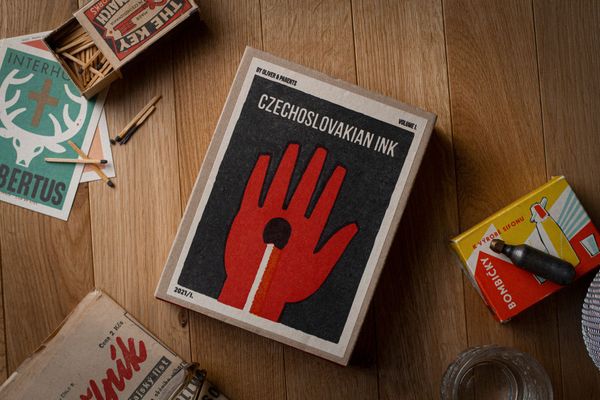
A matchbox full of past
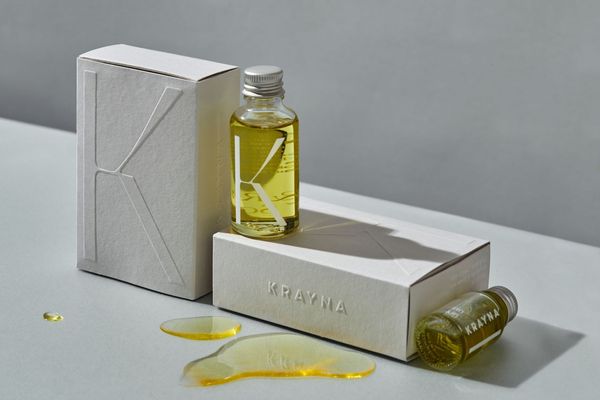
The flora of Krajna lives on in KRAYNA’s latest cosmetics










